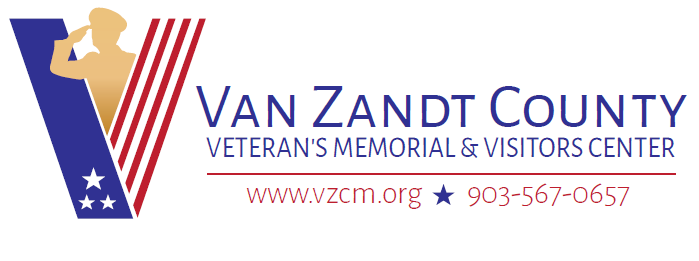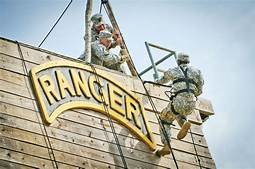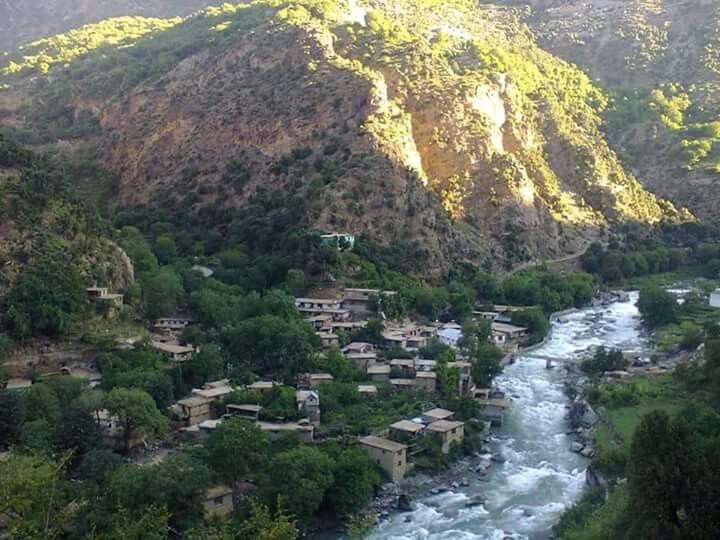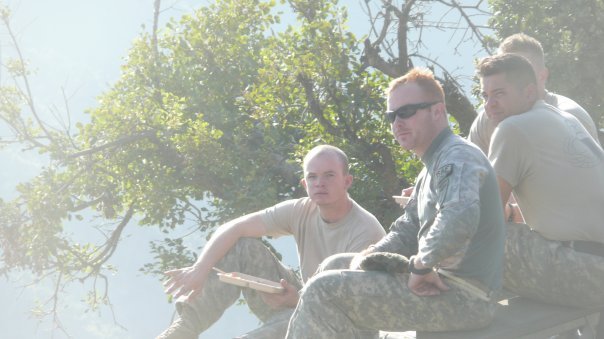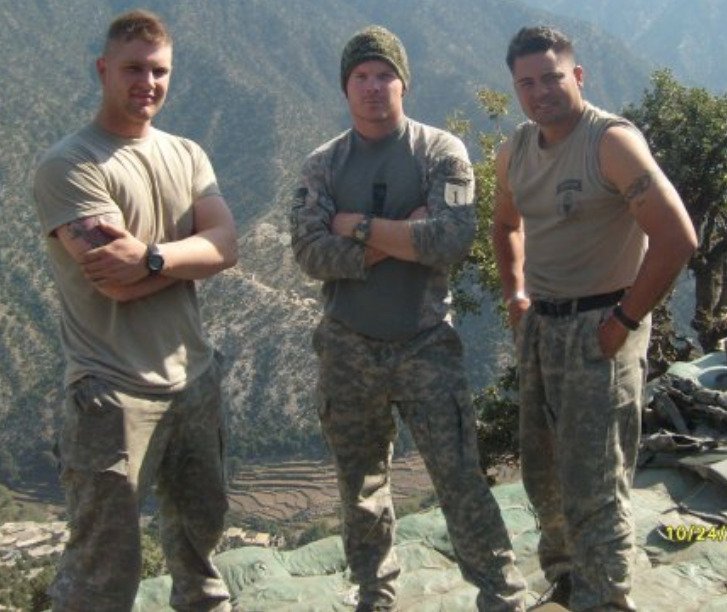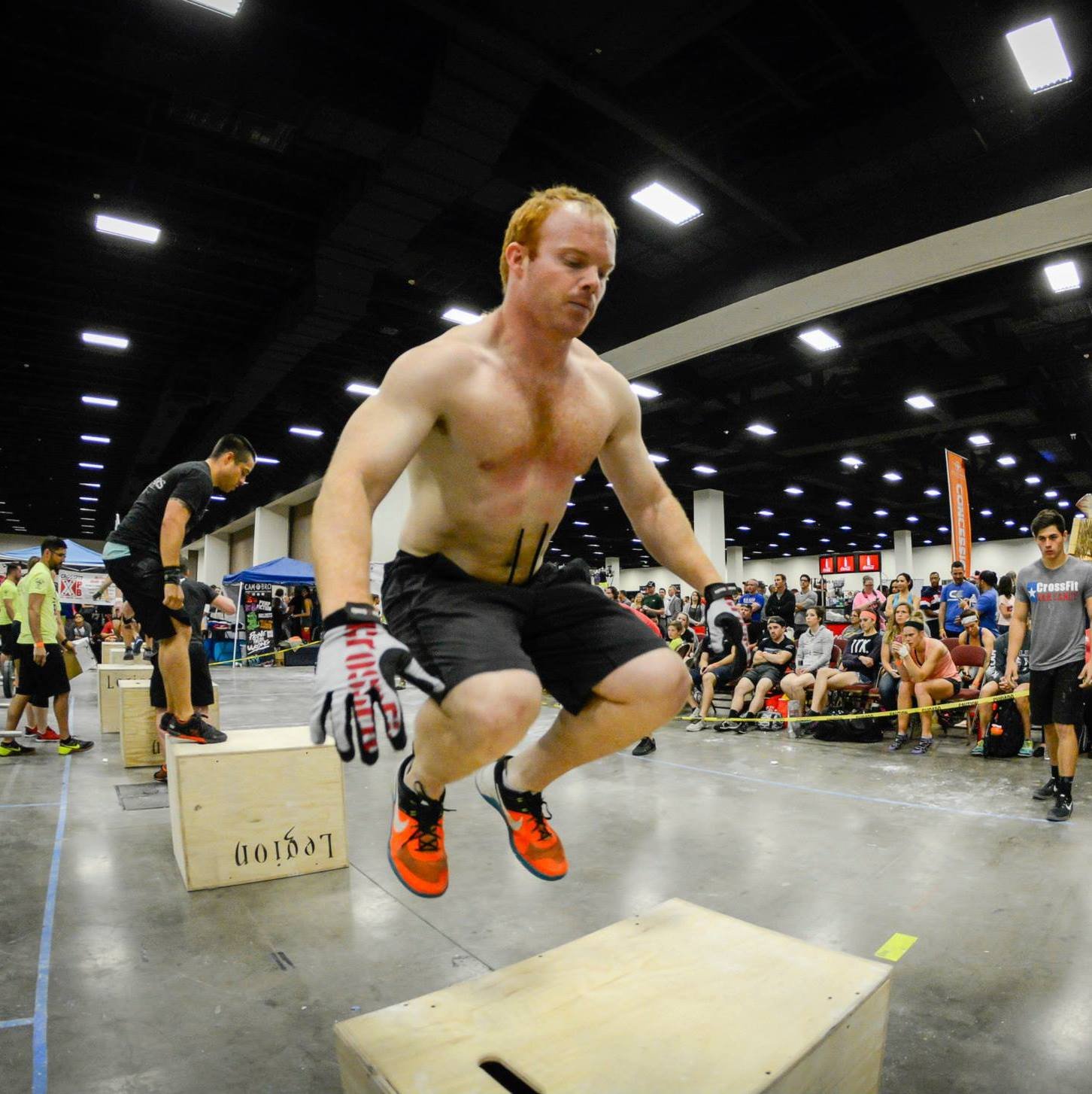Sam Deen
Sam Deen, U.S. Army, West Point Graduate, Canton, Texas
(Additional excerpts for this article from a 2018 Audio Podcast Fear and Courage: Stories of Service)
Sam Deen is a former Army Captain and 2006 graduate of the United States Military Academy at West Point. He served as a rifle and then scout platoon leader in the 3rd brigade, 1st Infantry Division. He deployed to the Pech and Korengal River Valleys in 2008 and 2009.
Sam and his wife Ashley own CrossFit Van Zandt and CrossFit Van Zandt South, as well as Van Zandt Coffee Company. He owns a real estate investment company, GP Delta Investments and is a licensed Realtor. He was a candidate for the United States Congress in the 5th District of Texas in 2018.
9-11 Twin Towers
“9-11 held a lot of influence on me in joining the Army. In the 80s we had Rambo movies, Gi Joe …. most of the toys I had were military toys.
My dad was in the Army and served in Vietnam. He was drafted and served two years. He said, “Why don’t you do the Air Force, it is a lot easier.” I always wanted to do the hardest things I could do. I didn’t want to have a career in the military. I knew that the whole time. My parents have always been supportive of my efforts.”
West Point
“The first time I took the SAT, I scored on the Forrest Gump level. It was in the low 900s. Well outside the range for West Point attendees. I took the SATs five times. Every time I got a little better. I finally got in after combing all my tests and ended up in “BEAST BARRACKS,” at West Point.
I lost at least 20 lbs. at Beast Barracks. Up to this point I had never ran over a mile in my life. I was a football player in High School. I had big muscles. I failed the Army’s first 2-mile PT test. A 15-minute 2-mile run was not exactly an easy thing to do as a new Cadet. You only have 6-weeks to fix it if you fail it. There is the West Point Sewage Plant on the course and you pass it three times. Being at the Academy was a course at learning to fail and being ok with failing, because you know you are going to correct it down the road.
Every Military School is going to break you down and make you fail. Then you are going to be built back up. Having done that, it unlocked my potential and drive to do great things down the road. Without failing you would never know how unfit you really are.
I went thru West Point as a guy who wasn’t supposed to be there. I had a chip on my shoulder, like these people think I shouldn’t be here. I had something to prove. It has been a driving force throughout my life. I wouldn’t trade that experience for anything. What you learn at the Academy is incredible.”
RANGER SCHOOL
“I was as happy about graduating from West Point as I was getting my Ranger Tab. Ranger School just mainly qualified you to be an Infantry Officer. It was a huge relief. We called Ranger School “Camp Darby.” It is raining and 3:00 in the morning and we are getting ready for our Ranger PT. There is a 5-mile run under 40 – minutes. I knew this was coming and I trained hard for it. A lot of people washed out on that first morning. There is no rank, just your name. What matters now is how you lead your peers on successful missions, without food and without sleep. We were there in January so there was extreme cold. We did go to Florida and that was like Heaven. We were fed two times a day. In Mountain Phase we had these baby pine trees. Someone told be those pine needles had Vitamin C in them. I started eating these pine needles and that is what got me thru Mountain Phase.”
Eating Pine Needles in Ranger School
“A few months after Ranger School Ashley and I were going on a couple of hikes. I took a big fistful of pine needles and put them in my mouth and I thought, how in the hell did I ever eat that. I was gagging. I bet I ate a hay bale of pine needles when I was in Ranger School. I ate them all the time. I never got sick from them. Somebody told me there is vitamin C in them so I just started eating them. I dipped them like snuff. If you are ever starving give it a shot. See how it goes. The baby pine needles were the ones I would try to get.”
My wife still has letters about some of my food fantasies. I would write her letters on a green note pad. I was very descriptive about the food I wanted when I got out. She knew I was going crazy. They are hysterical to read. I fantasized about imagined meals. It would help pass the time.
Ranger School is the BEST leadership school in the country,” Sam said emphatically.
Was Afghanistan what you thought it would be?
“It was a lot more intense than what I thought it was going to be. Afghanistan had kind of fallen off the news circuit by the time I graduated from West Point. In 2003 they invaded Iraq and it was making all the headlines. A lot of those combat situations were mounted operations. They were driving Tanks, Humvees and Bradley fighting vehicles thru the cities and doing patrols.
We all thought we were going to deploy and go to a base and we were going to do mounted missions out of that base. Just do vehicle patrols and come back. When we got to Afghanistan it was very much do a mounted patrol at night somewhere, get out of the vehicle and start climbing up the mountain. In my case, a helicopter would take and insert us on top of a mountain. We would hike up the mountain and set in. My Unit, the 1-26 Infantry Division, went into one of the hottest areas in Afghanistan. There were a lot of troops in contact and a lot of firefights. We were having contacts on a daily and weekly basis. It was a lot more intense than I had ever thought.
We came out of Ft. Hood and we weren’t in shape for the mountains. The Hindu Kush Mountain Range in Northeast Afghanistan is next to the border of Pakistan. That range goes all the way to the Himalayas and to Mount Everest. These mountains are very jagged and sharp, almost sinister looking. They are as big as the Rocky Mountains. It would be a beautiful country if there wasn’t constant war going on. Where I was you could see the Khyber Pass where Alexander the Great marched his Army and he also had his own problems fighting In Afghanistan. The British came twice before us, then the Russians. A lot of the locals thought we were the Russians.
The primary geographic features of the province are the lower Hindu Kush mountains which are cut by the Kunar River to form the forested Kunar Valley. The river flows south and southwest from its source in the Pamir area and is part of the Indus River watershed via the Kabul River which it meets at Jalalabad.
Tribalism is more important than Nationalism. Nobody cares too much about the country. It is about the tribe.
In the Koringal Valley was the Koringali tribe. They spoke a different language called Koringali. They lived in this valley and fought with the other tribes. They were like gangs. We try to put these people in power and it’s like what America has tried to do over and over again in different places. All these people knew their whole life was corruption. Our goal was to try to make the Police, the Afghan Army and the Government legitimate.”
“Northeastern Kunar Province, however, has been described in mythic proportions as the “most dangerous terrain for U.S. forces anywhere in the world” U.S. soldiers who fight a bold enemy in Kunar Province’s rugged mountains have dubbed it Afghanistan’s “Heart of Darkness.” Source
“There is a funny story where the General of the Police Force, who was a Russian POW when the Soviets invaded, rode horses with me.
He taught me a lot about horseback riding. Probably the best horse rider I had ever seen. No saddle. No cowboy boots, just bare feet. Hugging a horse with his legs, a lot like a Native American. I could barely hang onto the horse, and I’m a Texan. His horse was just jumping and he had his hands out looking at me,” Sam said laughing at his story. “He was like riding a Bronco Buck for 20-seconds with no hands. This General was the head of this Police Force and he sold positions in his Force to other police officers. He was getting paid selling these spots. He didn’t know how long we were going to be there. You can’t blame them, you just have to understand what is going on.
I had two Interpreters, Jawed Mohammad Zay, and Salem Rasekh (in photo left). Jawed was stopped coming out of Pakistan and was caught with some illegal music and the Taliban almost beat him to death. He really hated the Taliban. They are both in the United States today. I worked on getting them back as soon as I left.
Salem is now a Staff Sargent in the U.S. Army today. He was a good guy and we roomed together in Afghanistan.
I trusted them with my life. His dad was a General in the Army and he has a brother who is a Doctor in Germany.
We were in one of the only places in Afghanistan that had timber. The timber trade business was huge in this area. A lot of the timber, sawmill and landowners immediately turned into bad guys against the Afghan government. They took all of the mountains where the timber owners were making millions selling lumber to Pakistan. The Taliban got involved and making money extorting the timber when it got to the border. The landowners were called Sub Commanders, or AAF Anti Afghan Forces. They were basically just businessmen. The High Commanders were Al Qaida members, mostly in Pakistan. It was just a political nightmare over there. We knew most of the bad guys travelled back and forth over to Pakistan and we couldn’t follow them.”
Rules of Engagement
“I never felt like I had my hands tied behind my back under the Military Rules of Engagement. My rules with my men were, if you ever feel threatened, just kill them. It’s not worth it. We will go to trial if we have to. If you feel threatened, you engage. Everybody knew that. There was never a time where we felt like we couldn’t shoot or kill the enemy. In the Koringal Valley there was a curfew. If you are out at night, we may think you are the enemy and we will engage you.
As an officer and a leader, I always made it clear with my guys. Every time you go outside the wire or in enemy territory, you have to have a plan for every possible contingency. What do we do if they ambush us close, or what do you do if they ambush us from afar? What if there are artillery or mortars or if a bomb blows up one of our vehicles or if someone is running away? You always have to have a plan on your exact steps at all times.”
ENEMY FIRE ON MY 2ND MISSION
“On our second mission we did the same thing but this time we received contact. Someone shot at the route clearance package and hit one of the soldiers. We shot at them. There was a guy shoot a 50 cal at our position from the route clearance team which almost destroyed us. An RPG (Rocket Propelled Grenade) came just a few feet over our position and blew up behind us. We called in close air support from the Kiowa Warriors and the enemy broke contact. It was hard in Afghanistan to know if you had an enemy KIA killed or not because of the terrain. Rarely did you see the enemy. You would see muzzle flash and you would focus your fire there and you would have helicopters looking around for movement, sometimes using thermals. You never knew where the shooting was coming from. The sounds come from all angles because of the valleys and the landscape.
I remember when the bullets started flying at me and at my guys that I was so obsessed that one of my guys would be hit by a bullet. It was like somebody shooting at your kids. I was constantly going around and making sure nobody was hit. I laid rocks in front of my position. My hands were shaking and my heart was beating thru my chest. A tremendous amount of adrenalin was coursing thru my veins. I had my GPS, my compass and my radio right there. I was ready to call in air support or the artillery. That was my job. I was just so afraid that one of my guys was going to get hit. Being a Commander on the ground is like being a parent role. That feeling goes away eventually and you become more proficient at what you do.
After the shooting was over, the enemy was between my platoon and the pickup zone. We had to climb back up the mountain. We were nervous of an ambush before the Chinook picked us up. It didn’t happen and we were able to get out.”
What was your worst fear as a leader?
“My soldiers dying was always my worst fear. SSG Kristopher Rogers and SGT Ezra Dawson (photo on left) were two of my soldiers killed in Afghanistan. Khris was killed with an IED (Improvised Explosive Device) early in my deployment on the Korengal road. I was not there. It was a situation where he was tasked out with another company. I was home in Austin, Tx. on a two weeks leave when Ezra was killed. I was called and told Ezra’s helicopter was shot down with an RPG. It crashed and he was killed. I think about those guys every day. We lost quite a few guys in our unit. The sacrifice of American soldiers in these wars should never be taken lightly. I remember coming to the realization on a mountain in Afghanistan that when we get back from this, that no one should infringe on our freedoms as American citizens.
This picture is in the Korengal Valley at an outpost called Restrepo. It was named from a medic, Juan “DOC” Restrepo who was killed in action. This is me in the middle. Jamey Kim on the right is my Platoon Sergeant and on the Left is my RTO Richard Dyal. Dyal is still in the Army and Jamie retired.
There is a documentary called RESTREPO by Sebastian Younger for National Geographic.
He did a documentary on this combat outpost with the 173rd Airborne. That was the unit we replaced. They established that base. It is hard to watch. The best war documentary I have seen from this conflict.
I was the ground commander and I always wanted to make sure my guys came back. Unfortunately, not all of them did.”
We did a lot of good in Afghanistan
“We tried to do the impossible and we did a lot of good in Afghanistan. We are trying to establish security for the local population to trust the police, the Army and to vote and to ask for help from the Government. We were building schools, digging wells, fixing roads so people can travel and do commerce. We were helping farmers plant corn and teaching them to plant other crops instead of poppy and heroin. Trying to make their life better and not have to rely on the illegal drug trade. We did accomplish something.
There were about four officers before me and four after me and they would build up trust with one officer and they were just waiting for us to leave. They were just trying to figure what they were going to do when we left and what the game was.
Our troops being there for 20-years and it was almost tragic to see how we left. It is easy to say, what we should have done. When we killed Bin Laden, the next day we should have exited that place. That was our original mission. I really wanted to get Bin Laden and we were looking for him. I was at Ft. Benning teaching when I got the news he was killed. I wanted to leave Afghanistan a long time ago and it is unfortunate how it happened. I felt like our exit could have been done a lot better. A lot of the Afghanis I worked with up and left and the Taliban just rolled in. They are back to their old tribal wars.”
Did missions become easier over time?
“You never knew what was going to happen but repetitions made it easier over time. I would really study the maps and target reference points and named targets before each mission. From each base we had artillery and there were named targets on the terrain from our location. Target 001 is here, 002 is here. You could see it on the map.
When you are out there you have to identify where that location is at. They can hit that target really quick and you can adjust the fire zone if you get off target. It may take it a while to get it targeted in if there is something other than that target. When we took fire, you have to identify where it came from. Then you can call in artillery on the location. You had artillery or helicopters on station, Apache or Kiowa Warriors.
I only shot my rifle two or three times during my deployment. My main weapon was my radio. The pilots could only stay on station for a couple of hours then they had to go back and refuel. The enemy knew that, and then I had to use the artillery. You just always had to be prepared for whatever may happen. Hyper vigilance. You stay on this hyper focused alert looking at every person to see if they are a threat. You are constantly on alert. You get really tired. Pure adrenalin. When you get back to base, it is hard to turn it off.
Coming back from deployment it takes a while to unlearn what the body and mind has been thru. The sight, the sounds, the smells….. they are all heightened. It affects everybody in different ways.”
Why was the enemy so hard to defeat in the Koringal Valley?
“Many of our enemies were just poor people. They were paid just a few dollars to shoot at us. They would grab a gun, shoot at us, hide the gun, and go back to farming. Every now and then they would hike in some people. There were operations where they amassed hundreds of fighters.
There was a battle called “WANAT” the week that I arrived in Afghanistan. The Americans were setting up a new combat outpost and it was overrun. Nine Americans died. They amassed two hundred fighters there. Overall, we lost 50 soldiers fighting in the Korengal Valley.
When I got back from Afghanistan I was an instructor at Ft. Benning in their Infantry School. I was the Reconnaissance Platoon Leader in the Line Infantry 1-26 and then a Platoon Instructor for about two and a half years. I felt like I trained those guys well. These new Lieutenants from West Point and ROTC ended up going to Afghanistan and Iraq. Hopefully, I saved some lives with that training.”
Post-Traumatic Stress (PTS)
“I had some Post Traumatic Stress from what I was exposed to in Afghanistan. Just talking about it now has my heart racing. It affects me. I have struggled with it and had some counseling thru the VA, and it helped me. As a veteran struggling, you just have to do it. Everybody gets affected by war. I just refuse to let it control my life. A lot of veterans get stuck and they get in their own way. It consumes them to a point where they hurt themselves. If you hurt yourself, you let the enemy win.
At these NFL games instead of marching our soldiers out on the field, which most of us hate to march anywhere, give them all a nice box suite with all the beer you can drink and all the food they can eat. Say, thank you, and let them go ahead and watch the football game.
I told my guys when we came back, we had a hard deployment. Look, we can all die tomorrow and know that we have done something. We did a lot of good over there. We advanced it, even though we pulled out of there. We were there for 20-years, thank God we are over it now. We have that experience and we should be grateful. The opportunity to serve the way we did. I love my guys now. They are doing great things.
As a nation we cannot forget these soldiers and do everything we can do to help our warriors and the men and women still in uniform serving our country. The country asks so much of our military families. It should never be taken lightly.”
CrossFit and the Coffee Business
“When I got out of the Army in 2011 I came back to Canton to start CrossFit Van Zandt. I also got on the Garland Fire Department. I just started CrossFit and had one customer, so I went to work for the Fire Department, basically to live. My first class at CrossFit is at 5:15 a.m. Monday thru Friday teaching fitness, similarly like I did in the Army. I guess it was only the real thing I knew how to do,” laughed Sam. “I put on a pot of coffee when I got there. I drink it black with no sugar. I kept buying better and better coffee and going to the best coffee shops in Dallas. I found these coffee roasteries and starting asking a lot of questions of the owners. I eventually bought a small coffee roaster about the size of a microwave. I would roast a little coffee and serve it at the gym. Some of the customers liked the coffee and I started roasting my own coffee in a bag, but my roaster could only do about one bag at a time. It would take an hour to roast one bag. So, I started researching who made the best coffee roasting machine.
Diedrich Brothers in Sand Point, Idaho. Ashley and I took our van and headed to Idaho. I took a 3-day roasting class learning on the commercial roaster. I then took out a loan to buy the machine. I had it installed in our Athens business site.
About this same time the gym started becoming more successful. I opened a 2nd gym in Athens along with the Coffee Roasting Business. I started buying coffee beans from all over the world.
I make this coffee called Hondo Sidekick, which is the best damn coffee with beans coming from Honduras. People love it. The quality of the bean has a lot to do with the flavor of the coffee. Then there is a science to roasting the bean. Keys to good coffee making are the beans, the roast and the science to roasting and good water. CrossFit is anti-sugar and anti-artificial ingredients. Good coffee and exercise is the key to a good life.
I love working out, so I love going to CrossFit every day. Ashley is very much part of the business, more so than I am. It is a lot of work, but it does give us something to do. Several people have come to us and said they lost over a hundred pounds and really turned their life around and gained confidence. We also do some work with the Special Olympics where special needs guys come in and we give them a training facility to use, like they are on a real team.
I also dab into a little real estate. I buy and sell homes. In 2012 I started buying single family homes and renting them out. That is my real estate company.”
Getting into Politics
“Back in 2017-18 our Congressman was retiring and Ralph Hall gave me my appointment to West Point. I really wanted to be an advocate for veterans. I feel like the deck is stacked against you when you open a small business in Texas. Permits, taxes and all the regulations you have to do to start a business can be overwhelming. Politicians love to spend other peoples’ money.
I was in a Republic Primary with seven other candidates. I was the ONLY candidate that lived here. Everyone else was big money from outside the county. Every debate we talked about abortion and the border and that was mainly it. I wanted to talk about the Veterans. I wanted every Veteran who has a VA card to go to any doctor they want to go to. That would be cheaper and establishing these VA hospitals, where you have to go there, wait in line at a place, where no doctor really wants to work there. It’s lunacy to me. I also wanted to end the war in Afghanistan. Our Congress never voted on us going to war so they were never held liable for what was going on. They didn’t want to be held accountable. If you truly want to risk your neighbor’s sons or daughters and believe in the cause you should have to vote on it. We need to know where you stand on the issues. I still have hope we can make a change in this country. I realized there is a lot of money tied up in politics. Political Action Committees (PACS) are legal in the United States, but it should be illegal.”
What’s on Sam’s Bucket List
“I want to show my son as much of the United States and possibly the world. I want to show him the cool places in this country and share that with him and my wife. This is the most beautiful country in the world. I don’t want to force my son to go into the military or anything I did. I want him to know nothing is impossible as far as career path or what he wants to do.”
Sam Deen, thank you for your service to our country while serving in the United States Army. Your courage and bravery will not be forgotten.
NOTE: Meet other Veterans from Van Zandt County by going to the top of www.vzcm webpage and click on MEET OUR VETERANS. On the drop-down menu, click one of the (5) branches of services and read each of our veterans stories.
“Every Veteran has a story to tell.” Phil Smith
GOD BLESS OUR VETERANS AND GOD BLESS AMERICA
(ALL photos on this Facebook page are ©2022, Phil Smith and Van Zandt County Veterans Memorial. NO unauthorized use without permission) All Rights Reserved.
